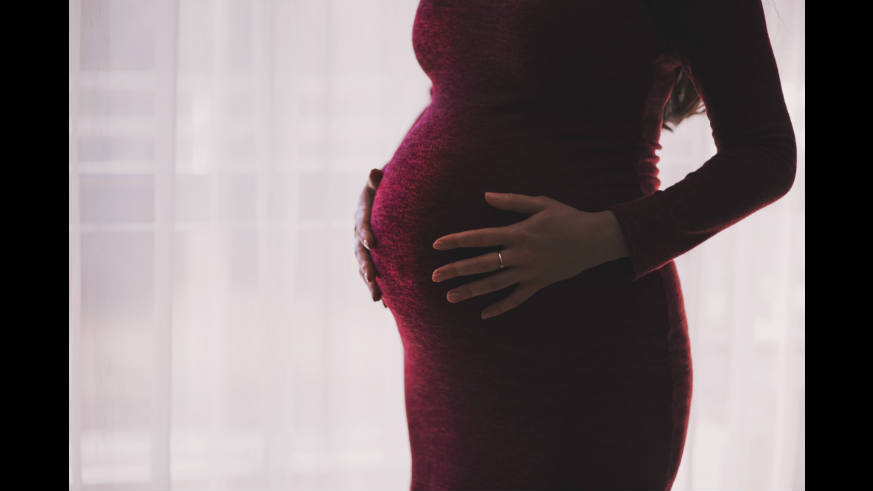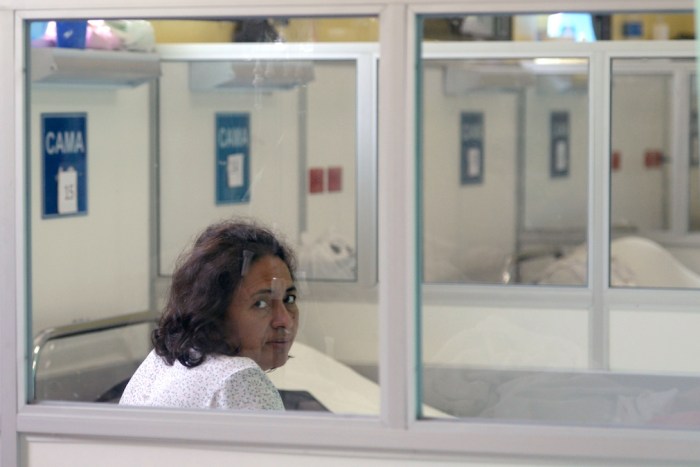You might not think “The Handmaid’s Tale” is the realistic future of the United States, but undeniable pressure has been placed on women who fear the loss of reproductive rights. The Trump administration has seemingly waged a war on the womb from acting to defund Planned Parenthood to making pregnancy a pre-existing condition under the proposed American Health Care Act, which recently passed in the House.
Women who choose to become pregnant can also face problems in the workplace.
Not all employers think like Lithuanian basketball coach Sarunas Jasikevicius, who recently schooled a reporter who asked why he allowed a star player to skip semifinals for the birth of his child.
“Do you have kids?” asked Jasikevicius, who has two kids of his own. “When you have kids, youngster, you’ll understand. Because that’s the height of a human experience.”
Last month, an airline employee was awarded $30,000 after Endeavor Air, a subsidiary of Delta, denied her a place to pump breast milk in John F. Kennedy International Airport.
A jury in Washington, D.C., awarded a former Chipotle employee $550,000 in August 2016, saying that she was discriminated against based on her pregnancy, the Washington Post reported. Doris Garcia Hernandez was fired after being denied water and bathroom breaks and time for doctor’s appointments.
A woman told Think Progress that she was fired from her job at a makeup counter at Saks Fifth Avenue in 2014 because she was pregnant and needed to sit from time to time. Before she was fired, the woman alleges she was told she had to live up to the same standards of her nonpregnant co-workers and that “pregnancy is not part of the uniform.”
If you’re considering pregnancy, are pregnant or recently gave birth, what are your rights?
Massachusetts
Earlier this month, the Massachusetts House passed the Pregnant Workers Fairness Act, which would expand existing protections for pregnant women.
Under the Massachusetts Pregnant Workers Fairness Act, employers would be prohibited from denying a reasonable accommodation related to pregnancy, including providing longer or unpaid breaks, modification of equipment or seating, offering light duty, providing access to private nonbathroom space for pumping breast milk and even temporary job restructuring.
The employer bears the burden of proving undue hardship, which the act defines as “an action requiring significant difficulty or expense.”
The employer and employee are required to “engage in a timely, good faith and interactive process to determine effective reasonable accommodations to enable the employee to perform the essential functions of the employee’s job.”
The employer could ask for “documentation from an appropriate healthcare or rehabilitation professional,” but may not ask for a doctor’s note for more frequent restroom, food or water breaks, seating and limits on lifting over 20 pounds.
An employer may not refuse to hire a woman based on pregnancy or the possibility that she will become pregnant.
The bill, which will amend the state anti-discrimination law, is expected to pass the Massachusetts Senate and be signed into law by Gov. Charlie Baker.
New York
In New York, women are protected under the New York State Human Rights Law. The protections mirror those under the federal Pregnancy Discrimination Act, which is an amendment to the Civil Rights Act of 1964.
Any employer in New York with four or more employees must comply with the state law.
Under the law, employers cannot discriminate against pregnant women by firing them based on pregnancy or denying them a job, promotion, or benefits so long as the woman is able to perform the tasks of the job, according to the law firm of Phillips and Associates.
An employer cannot force a pregnant woman to take time off unless she is unable to reasonably perform her job and, in some cases, the employer must provide reasonable accommodations, such as providing nursing mothers with breast pumping breaks.
Pregnancy discrimination is akin to gender discrimination, so many of the same rules apply, but once the baby is born, moms need to rely on the federal laws, like the Family Medical Leave Act.
“If an employer requires its employees to submit a doctor’s statement concerning their ability to work before granting leave or paying sick benefits, the employer may require employees affected by pregnancy-related conditions to submit such statements,” according to the U.S. Equal Employment Opportunity Commission.
Pennsylvania
“Pregnancy discrimination is rampant,” Laura Mattiacci, a partner at Console Mattiacci Law in Philadelphia, told Metro. “A woman having children is often seen as a detriment rather than an asset to an employer based upon negative stereotypes that do not apply to all women.”
Mattiacci, on maternity leave after the birth of her fourth child, explained that the commonwealth of Pennsylvania follows the standard law, but workers within Philadelphia reap the benefits of the Philadelphia Fair Practices Ordinance.

The ordinance protects individuals based on sex, race, national origin and other categories similar to the state and federal law, but it also includes sexual orientation — something Pennsylvania law does not recognize.
The ordinance was amended in 2013 to include protections for nursing mothers, something that wouldn’t fall under the American Disabilities Act, which would allow for a reasonable accommodation.
“I’ve pumped in all places and as an employment lawyer, I represent people in my position a lot,” Mattiacci said. “Age discrimination is pretty rampant, but second is pregnancy discrimination.”
“The protections in place for pregnant women who work in Philadelphia are not available across the country,” she added. “Further steps need to be taken to expand protections for every pregnant and nursing working woman in America.”



















